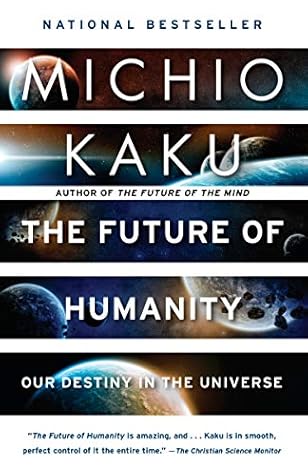More on this book
Community
Kindle Notes & Highlights
by
Michio Kaku
Read between
February 11 - February 18, 2019
If one generation corresponds to roughly twenty years, this means that ten generations of humans will be born on the starship, which will be the only home they know. Although this may seem daunting, realize that during the Middle Ages, master architects would design grand cathedrals knowing that they would not live long enough to see the completion of their masterpieces. They knew that perhaps their grandchildren would be the ones to celebrate the opening of the cathedral. Also, realize that during the Great Diaspora, when humans began to leave Africa roughly seventy-five thousand years ago in
...more
Bioethicists, worried about the possible misuses of this technology, have organized conferences to discuss this new science because the side effects and complications are not known, and they made a series of recommendations to try to cool down the furious pace of CRISPR research. In particular, they raised concerns that this technology may lead to germ-line gene therapy. (There are two types of gene therapy, somatic cell gene therapy, where non-sex cells are modified, so that the mutations do not spread to the next generation, and germ-line gene therapy, where your sex cells are altered so
...more
Is the ultimate fate of human civilization to splinter into smaller entities, with only the sketchiest knowledge of one another? This raises the ultimate question: Will we gain the stars but lose our humanity in the process? And what does it mean to be human anyway if there are so many distinct branches of humanity?
perhaps the most startling prediction of string theory is that the universe is not four-dimensional at all but exists in ten dimensions. In all of physics, nowhere have we seen a prediction this bizarre, a theory of space-time that selects out its own dimensionality.
The multiverse can also be viewed from the perspective of theology, where all religions fall into two categories: religions in which there was an instant of creation, and religions that are eternal. For example, the Judeo-Christian philosophy talks about a creation, a cosmic event when the universe was born. (Not surprisingly, the original calculations of the Big Bang were done by a Catholic priest and physicist, Georges Lemaître, who believed that Einstein’s theory was compatible with Genesis.) However, in Buddhism, there is no god at all. The universe is timeless, with no beginning or end.
...more


